- Home
- J. Robert Kennedy
Saint Peter's Soldiers (A James Acton Thriller, Book #14) Page 2
Saint Peter's Soldiers (A James Acton Thriller, Book #14) Read online
Page 2
“What are you doing?” cried Donati as he rushed toward him, the distraction from the shouts and heavy pounding at the door momentarily forgotten.
Nicola yanked the portrait off the mat, quickly rolling it up, much to Donati’s horror, his eyes widening, his jaw dropping.
“Somebody has to save you from yourself!”
He snatched the piece of paper the tattooed man had given Donati out of his hand then bolted for the rear entrance and yanked open the door, stepping out into the morning light. He peered around the corner, finding it clear, his moped only feet away. Stuffing the portrait inside his jacket, he pulled his moped away from the wall and began to walk it out of the alleyway as casually as he could, turning away from the Germans.
He started the moped and climbed on.
Someone shouted.
He gunned the engine as bullets tore into the façade of Innocenti’s bakery. He squeezed his brake and leaned hard, his rear tire skidding out on the damp cobblestone, the morning sun not yet having burned off the overnight moisture. Regaining his balance, he twisted the throttle, the bike leaping forward as the Germans quickly closed the gap. Racing through the market, the shopkeepers just starting to set up their stands leapt back, some shaking their fists at him then diving for cover as the Germans opened fire.
I have to get off the roads or someone is going to be killed.
It never occurred to him that that someone might be him. He was running on adrenaline now, the portrait, tucked into his zipped-up jacket seeming impossibly heavy. It was all in his head, the portrait barely a foot square, yet it was the weight of responsibility he was now painfully aware of. The Nazi’s clearly wanted this drawing and didn’t care who died to get it. That meant their experts believed the legend could be true, and wanted it for Hitler himself.
I’ll destroy it before I let them have it.
He could almost hear Donati’s voice screaming in his head at the very notion. It was a priceless, irreplaceable piece of history. To destroy it was unthinkable. But history would be meaningless if the world was lost to the likes of Adolf Hitler. Though his country was an ally in the war, he had never supported the fascists. Mussolini was a thug that ruled through fear and lies. Nicola was convinced the masses followed him because they were brainwashed after years of propaganda.
At least the trains always run on time.
Though that was bullshit propaganda too. They didn’t actually run on time. His dad told him they were better than before, but only due to work done before Mussolini came to power.
And if Mussolini’s claim to fame was a lie, how much more was?
Yet you didn’t dare question.
Otherwise the OVRA secret police might show up on your doorstep one day and you’d never be seen again.
He careened into a tight alleyway, kicking out with his foot and pushing off the wall as his rear tire fishtailed its way deeper into the long passage. A quick glance over his shoulder had him breathing a sigh of relief.
The Germans were stopped at the end, unable to fit their car in the narrow gap.
He eased off the throttle slightly, finally having a moment to think.
Where am I going?
He couldn’t stay in town; the Germans would have it sealed off within minutes with the help of the local authorities. He couldn’t go to his house, he’d be putting his parents at risk.
Leo!
Yes, he’d go to his cousin’s. He had a farm outside of the city and he’d know what to do. He was also anti-Mussolini, despising the man, especially after he had aligned the country with Nazi Germany.
He’ll know what to do.
He emerged from the alley, crossing the road and cutting through another gap between the houses, thanking God for giving man the intellect to design the moped now saving his life.
In the distance, he heard the whistle of the morning train and chuckled.
It’s on time today.
He slowed as he emerged from the alley, turning right and continuing down the hill that the town was built upon, heading toward the valley where his cousin’s farm lay. The streets were filling now, the day underway, and his hammering heart was finally settling down. He ventured a wave at the butcher’s daughter, Maria. She waved back with a smile, his hand easing off the throttle for a moment as he forgot what he was doing.
Tires screeching behind him smacked his libido back down and he gunned the engine, not bothering to look back as the gunfire confirmed who it was. He heard a girl scream and his heart leapt into his throat. He stole a glance and felt bile fill his mouth as he spotted Maria lying on the ground, her father rushing from the shop, crying out in horror.
You killed her.
His eyes filled with tears, the street ahead suddenly a blur. He wiped them clear with the back of his hands, the train whistle louder now. He could see the tracks ahead where they crossed the road he was on, heading toward the station in the center of town. Looking to his right as he rapidly approached them, he spotted the trail of steam puffing from the engine and made a decision.
A decision that would save him, or doom him.
He hit his brakes, skidding to a near halt then turned, gunning it down the railroad tracks, this part filled with cobblestones, keeping the ride relatively smooth, as he raced toward the bridge. He heard the Germans’ brakes behind him as he cleared the edge of the town, his tires bouncing on the railroad ties, every bone in his body nearly jarred loose from the pounding. He could see the train coming around the bend, the whistle announcing its arrival, loud.
He leaned forward, urging his moped ahead as the engine raced toward him. Brakes squealed, the engineer apparently spotting him. Gunfire from behind him was barely heard over the screeching metal on metal, but something bit him hard in the arm and he cried out, nearly losing control of the bike as he grabbed for his shoulder. Both hands back on the bars, he twisted the throttle, the bike leaping forward, a game of chicken underway he had to win, his opponent having no way to turn. He was almost across, the massive black of the engine looming large in front of him, though not yet at the bridge.
I’m not going to make it!
He said a silent prayer as he glanced back, the Germans now stopped at the other end of the bridge, apparently content to let him die at the hands of Mussolini’s efficient rail system, there now nowhere for him to go.
He was almost there, only feet left, the train just coming onto the bridge. He steered to the right slightly, pulling up on the handlebars to lift his front wheel off the ties and cleared the rail, racing on the edge of the ties, the river below appearing more vicious than he remembered.
The train was upon him.
And he steered hard to the side.
Sailing through the air, he hit the ground beside the track, the wind from the train whipping around him, its brakes still screaming in protest, nearly knocking him off the bike. He locked up his brakes, coming to a halt as he looked back and smiled.
At the Germans trapped on the other side as the train slowly came to a halt, blocking them from crossing.
He gave them a wave that was returned by a shaking first, then accelerated down the hill toward the road that would carry him to his cousin’s farm.
Thanking God for answering his prayer.
Entrance to St. Peter’s Square, Rome, Italy
Present Day
One day before the theft
Diego resisted the urge to check his watch. It would merely show it was one minute later than the last time he had looked. He scanned the crowds from his vantage point, a bench along the outer wall of Vatican City. The entrance to St. Peter’s Square was to his right and hundreds if not thousands of tourists were pouring in and out constantly. He had been there countless times himself, of course, his order literally worshipping at the altar of the man himself.
St. Peter.
The founder of the Church, the man Jesus himself had tasked to continue his ministry after he was gone.
And I say also unto thee, That thou art Peter, an
d upon this rock I will build my church; and the gates of hell shall not prevail against it.
St. Peter had been a faithful disciple of the Lord, spreading his teachings until his death at the hands of the Romans, and in the end he had insisted he be crucified upside down, feeling himself unworthy to be put to death on an upright cross as the Lord had.
And from that moment forward, his symbol was the inverted cross.
It annoyed Diego to no end that ignorance among today’s youth meant the holy symbol had been coopted by idiots who thought it was satanic, some sort of symbol representing evil, anti-church activists tattooing it on their flesh as a monument to their obliviousness. He felt like grabbing every one of them and smacking them up the side of their head and giving them a history lesson.
He sighed, absentmindedly rubbing the tattoo on his chest. It was impressive, an ornate inverted cross, paired with the keys to Heaven, given to him upon his admission into the Keepers of the One Truth. He bore it proudly, though it did at times limit him in today’s liberal society. He could never take his shirt off in public, though that merely forced him to live modestly. Casual relations with a woman were precluded, the need to explain the tattoo to just any carnal desire not acceptable.
It forced him to lead a better life.
A moral life.
He had married eventually, explaining the tattoo to his wife as a youthful indiscretion. Only the first of many lies he had told her, she unable to know what he did with his life. She thought he had a government job that he couldn’t talk about, with a workplace she wasn’t allowed to know the location of.
And she was fine with that.
She loved him.
She trusted him.
And it tore him apart at first, until he realized that all of the men in the Keepers of the One Truth had the same problem and had learned to live with it, as had his own father. Only the sons of Keepers were invited to join, and in modern times, many refused, too often turning their back on the Church in exchange for instant gratification, instead of a life of service dedicated to protecting the Church in exchange for an eternity in Heaven.
He had embraced the group wholeheartedly, recognizing the evils of modern life that threatened to overwhelm those around him, and instead devoted himself to a life of servitude.
And lies to his loved ones.
It was a necessary evil that helped keep true evil at bay.
For the world was filled with evil, filled with enemies of the Church. It always had been, and it always would be.
And St. Peter had foreseen this.
And created an army.
The Keepers of the One Truth.
Their mission was to protect the Church from its enemies. All enemies. Of this earth and not. The evils of man were easy enough to protect against. They were predictable. It was those of Satan himself that were the challenge.
Thus the establishment of The Vault.
The Vault was a secret archive located under the grounds of the Vatican, its existence known to very few outside of the Keepers. Over two millennia the leaders of the Church had hidden away anything that challenged or threatened the faith, eventually establishing the Vault to secure these abominations so they could never be unleashed upon mankind.
Yet their mandate went beyond ensuring the integrity of the Vault and ensuring the current Pope performed his duty as handed down to him by St. Peter himself, it extended to protecting the Church and the Christian faith in general from outside threats, not the least of which had been the Nazis.
One of the few loose ends of that era tied up by the man he was meeting today.
He checked his watch.
Where is he?
In 1941, the Keepers had received word that the Nazis were attempting to acquire religious artifacts from around the world. And the Keepers had acted. They had immediately made contact with anyone who possessed something the Nazis may be interested in, and offered to take it into safekeeping. Few accepted the offer, the Keepers mere strangers, though once the threat became real, contact began to be made, including a small museum in the town of Rivoli.
With regard to a self-portrait of Leonardo da Vinci, drawn in red chalk.
He had never seen it beyond the photos. It had been preserved in one of the Keeper’s archives, and once the world had been deemed safe again, it had been returned.
News of the return had spread like wildfire, the compelling story of how it had been returned anonymously after having been secreted away from the Nazis, quickly gaining attention.
He had been there the night it was returned, the very man he was waiting for the one who had placed it on the doorstep of the modest museum. Diego had been but an apprentice then, Saverio his master, but now he was a full-fledged Keeper, tasked with duties he could only have dreamed of in 1998 when the portrait had been returned.
And when he had received the call to meet Saverio here, at this hour, his heart had raced in anticipation and curiosity.
As it did now at the sight of the older man making his way toward him, a rather large satchel slung over his shoulder. Diego was about to rise when Saverio held out a hand, stopping him. He dropped onto the bench beside him and shook his hand. “How are you, my boy? It has been a long time.”
“Over fifteen years.” The years hadn’t been kind to Saverio. He looked older than he should. In fact, he appeared unwell.
Saverio seemed to notice the concern. “Your eyes do not deceive you, my young friend. I am dying.”
Diego felt his chest tighten as his eyes widened and his jaw dropped. “How? Why? I mean—” He stopped himself, casting his eyes at the ground. “I’m sorry.”
Saverio patted Diego’s shoulder. “I appreciate your concern, young one. It is cancer and I have little time left, which means I need to settle my affairs.” He patted the large leather satchel beside him. “You remember the last time we met?”
“Of course.”
“We returned a portrait to a small museum in Rivoli.”
“Of course, I remember it as if it were yesterday.”
“What if I told you it was all a lie?”
What Saverio told him next shocked him to his very core. Everything he remembered of that night, the pride he had felt in reading the news reports and knowing his small part, were shattered in the several minutes it took to impart the truth.
“But why?”
“It was necessary. After the war, we knew there would be many Nazis left remaining and it wouldn’t be safe to return any of the artifacts put into our safekeeping. With the new millennium approaching, it was decided that enough time had passed that any Nazis still alive would be too old to be of any threat, and with the fascist dream dead, little chance they might actually bother trying anything. After all, the artifacts were hidden away because of rumors surrounding them.” He flicked his wrist. “Like our portrait.”
“You mean the legend that if you stared into da Vinci’s eyes—”
“You’d get great power. Exactly. Nonsense, of course, but these were valuable artifacts that we didn’t want to see stolen or destroyed due to dogma. But by the end of the millennium, with over fifty years past, it was decided it was time to start returning these items. It was a decision I didn’t agree with.”
“Why?”
“Because I had been hearing rumors.”
“What rumors?”
“That the Nazis were still alive and well. I couldn’t prove it, so I was forced to go along with the decision.” He smiled. “But if you knew me like your father did, you would know I don’t always play well with others.”
Diego turned away slightly, not sure what to say.
Saverio patted the satchel. “Inside is the legacy of my decision. I hand it down to you, to do with as you see fit. Should you not share my concerns, then you know what you must do, but equally, if do you, then you must fulfill your duty as a Keeper.” He turned slightly on the bench, facing Diego. “What I ask of you is a duty that cannot be taken lightly. You will be going against the
leadership, though they are unaware of what truly happened all those years ago. Their lack of awareness will protect you.” He peered into Diego’s eyes. “Are you up to the task?”
Diego bit the inside of his cheek, looking from the man he had idolized after their single encounter so many years ago, then at the satchel that contained the shattered truth.
He nodded. “Yes.”
Saverio smiled broadly, squeezing his shoulder. “Good boy, good boy! I knew I could count on you. You know I’ve been following your career since the moment you became an initiate. Your father and I were recruited at the same time, went through our training together. We kept in touch over the years. I was deeply saddened to hear of his passing.”
Diego frowned, looking away, not trusting his emotions. His father had been killed several years ago in a car accident. A useless death, a meaningless death. Killed by a teenager who was texting. The only satisfaction he was able to get was from the knowledge the teen had died a horribly agonizing death.
And though he was a man of God, he felt no guilt in taking pleasure in that knowledge.
Saverio motioned toward the gates to the Vatican. “I never pass up an opportunity to pray when I am in the area. Would you care to join me? Together we’ll say a prayer for your father?”
Diego smiled slightly, nodding. “It would be an honor.”
Saverio rose and nodded toward the satchel. “This is yours, now.”
Diego lifted the bag, slightly heavier than he was expecting, and slung it over his shoulder. They began to walk toward the gates, slowly, Diego now realizing why the man had been late. The crowds surged around them as the traffic whipped by on Largo del Collonato Street. They continued in silence and had arrived at the gates when the sound of squealing tires and screams behind them had Diego spinning to see what was the matter.
He gasped, a large SUV careening toward them, pedestrians bouncing off the large heavy-duty grill guard bumper, the driver giving no indication of slowing down.
Diego shoved Saverio out of the way, the frail man crying out as he hit the ground, staring back in horror as the SUV slammed into Diego. He could feel his bones break with the impact, but grabbed the grill guard as the vehicle continued forward, trying desperately to hang on while the agony of his crushed chest threatened to sap him of his remaining strength.

_preview.jpg) The Protocol (A James Acton Thriller, Book #1)
The Protocol (A James Acton Thriller, Book #1)_preview.jpg) Depraved Difference (A Detective Shakespeare Mystery, Book #1)
Depraved Difference (A Detective Shakespeare Mystery, Book #1)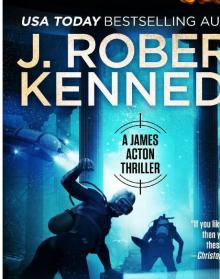 Atlantis Lost
Atlantis Lost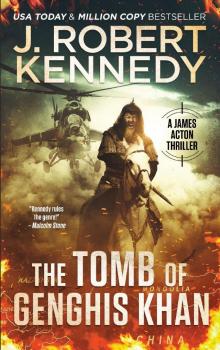 The Tomb of Genghis Khan
The Tomb of Genghis Khan_preview.jpg) Rogue Operator (A Special Agent Dylan Kane Thriller, Book #1)
Rogue Operator (A Special Agent Dylan Kane Thriller, Book #1)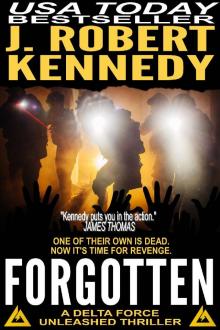 Forgotten
Forgotten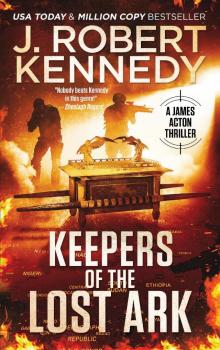 Keepers of the Lost Ark
Keepers of the Lost Ark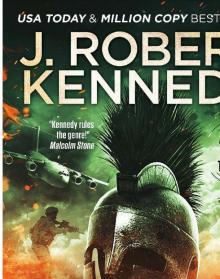 The Cylon Curse
The Cylon Curse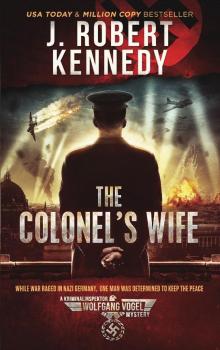 The Colonel's Wife
The Colonel's Wife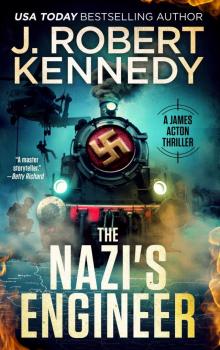 The Nazi's Engineer
The Nazi's Engineer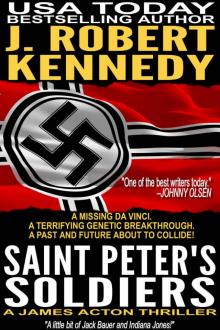 Saint Peter's Soldiers (A James Acton Thriller, Book #14)
Saint Peter's Soldiers (A James Acton Thriller, Book #14)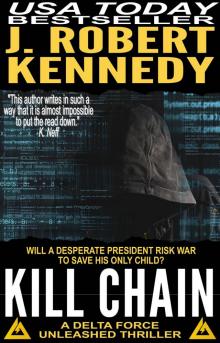 Kill Chain
Kill Chain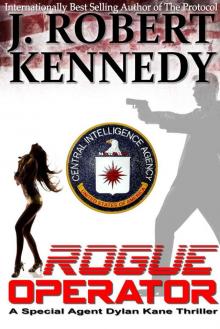 Rogue Operator
Rogue Operator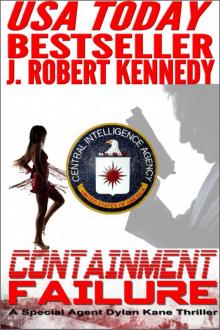 Containment Failure (A Special Agent Dylan Kane Thriller, Book #2)
Containment Failure (A Special Agent Dylan Kane Thriller, Book #2) The Lazarus Moment
The Lazarus Moment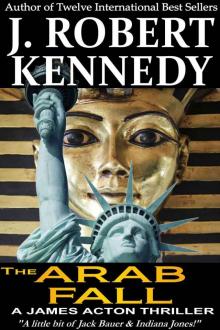 The Arab Fall (A James Acton Thriller, Book #6) (James Acton Thrillers)
The Arab Fall (A James Acton Thriller, Book #6) (James Acton Thrillers) Payback
Payback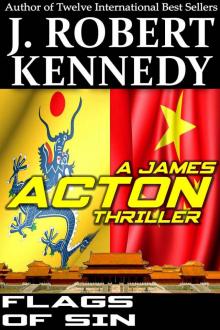 Flags of Sin - 05
Flags of Sin - 05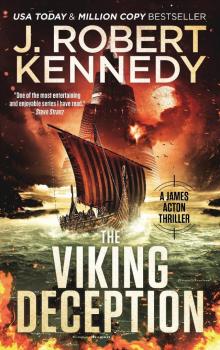 The Viking Deception
The Viking Deception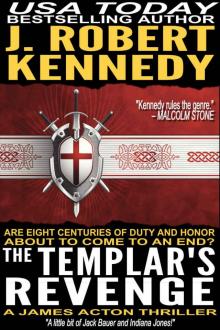 The Templar's Revenge (A James Acton Thriller, #19) (James Acton Thrillers)
The Templar's Revenge (A James Acton Thriller, #19) (James Acton Thrillers)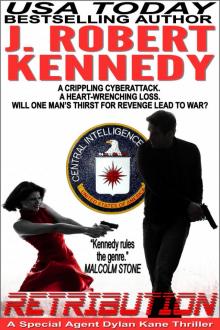 Retribution - A Special Agent Dylan Kane Thriller Book #7
Retribution - A Special Agent Dylan Kane Thriller Book #7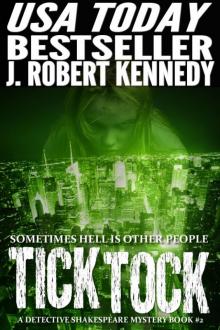 Tick Tock (A Detective Shakespeare Mystery, Book #2)
Tick Tock (A Detective Shakespeare Mystery, Book #2)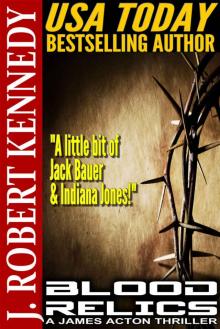 Blood Relics (A James Acton Thriller, #12)
Blood Relics (A James Acton Thriller, #12)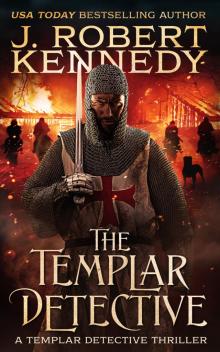 The Templar Detective
The Templar Detective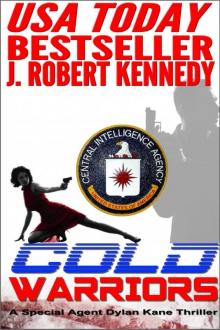 Cold Warriors (A Special Agent Dylan Kane Thriller, Book #3)
Cold Warriors (A Special Agent Dylan Kane Thriller, Book #3)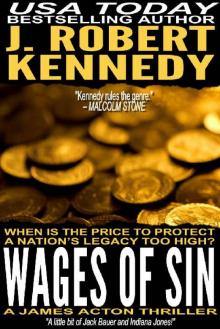 Wages of Sin (A James Acton Thriller, #17) (James Acton Thrillers)
Wages of Sin (A James Acton Thriller, #17) (James Acton Thrillers)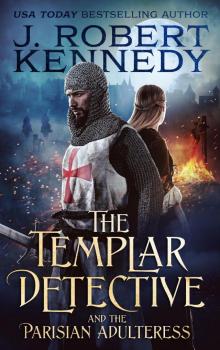 The Templar Detective and the Parisian Adulteress
The Templar Detective and the Parisian Adulteress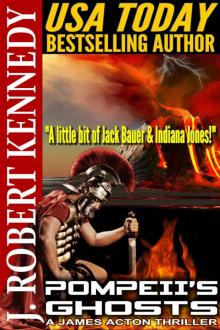 Pompeii's Ghosts (A James Acton Thriller, #9)
Pompeii's Ghosts (A James Acton Thriller, #9)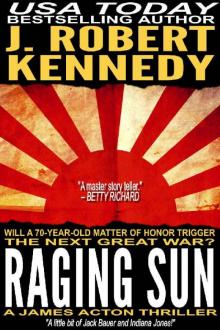 Raging Sun (A James Acton Thriller, #16) (James Acton Thrillers)
Raging Sun (A James Acton Thriller, #16) (James Acton Thrillers)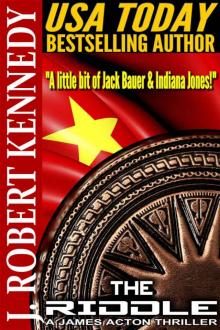 The Riddle (A James Acton Thriller, Book #11)
The Riddle (A James Acton Thriller, Book #11)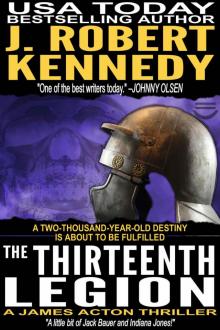 The Thirteenth Legion (A James Acton Thriller, #15) (James Acton Thrillers)
The Thirteenth Legion (A James Acton Thriller, #15) (James Acton Thrillers)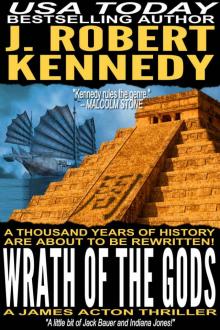 Wrath of the Gods (A James Acton Thriller, #18) (James Acton Thrillers)
Wrath of the Gods (A James Acton Thriller, #18) (James Acton Thrillers)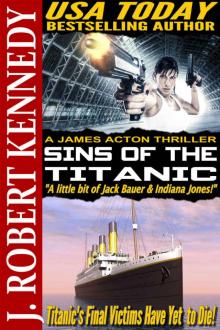 Sins of the Titanic (A James Acton Thriller, #13)
Sins of the Titanic (A James Acton Thriller, #13)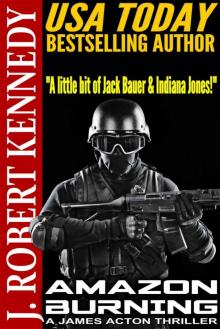 Amazon Burning (A James Acton Thriller, #10)
Amazon Burning (A James Acton Thriller, #10)